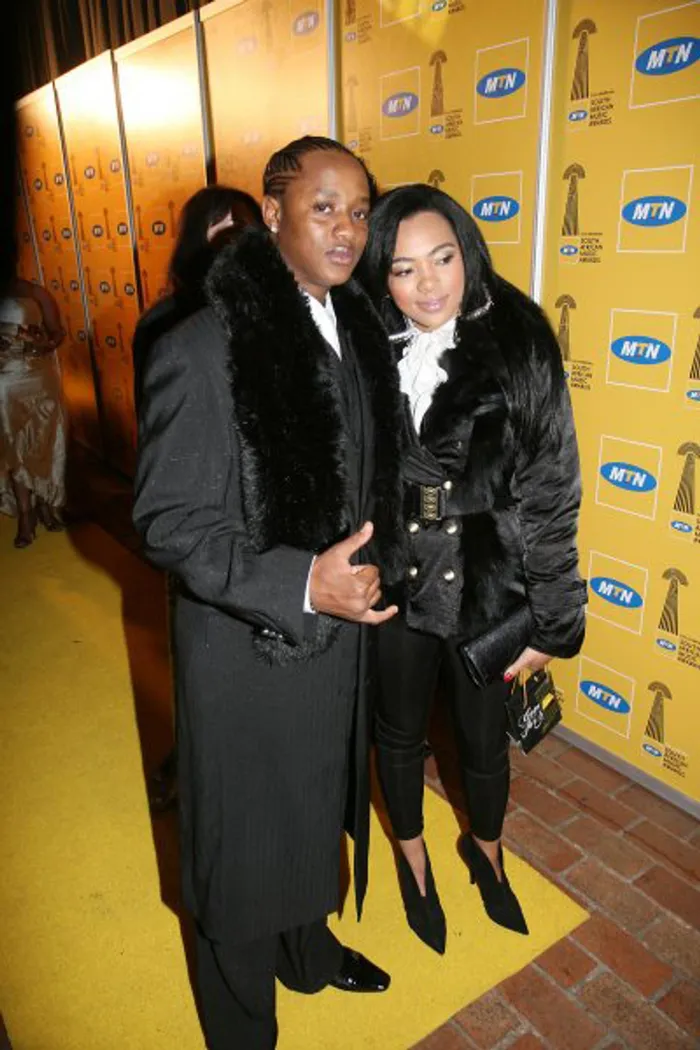Jub Jub: SA men’s response to rape – why do we doubt victims?

Hip hop artist Jub Jub and former fiance, Amanda du Pont. Picture: unknown
Sinethemba Sankara Bizela
To think and speak of rape in this country is to unconsciously divide the country into two camps: the believers and unbelievers.
But the more dangerous group is the fence sitters, those who are doubtful but vocal about it while at the same attempt to use the legal expert approach.
This mostly happens when both men and women have their favourite person accused of rape. They conveniently jump to ’legal talk’ (as though the law is synonymous with justice) while subtly discrediting claims of the rape survivor. My purpose here is not to offer a legal analysis, I know nothing about but a purely political one.
We should ask ourselves why in 2021 we still have to reprimand men about sexual violence!
Why is doubt the first almost natural response when a black woman is raped?
Growing up in the townships of South Africa, every time as young boys we hear that a woman is raped by a famous person we would argue amongst ourselves that the woman or girl seeks attention and wants to milk the celebrity’s money dry.
I remember one day in our sixth grade when a girl in our class was caught off guard, perhaps as a first-timer at the time, by menstruation. We whispered among ourselves boys, accusing her of sleeping with older people. Her chair was bloodied. And she was ashamed.
We also made things worse for her, crucifying her thereby certifying her embarrassment. We knew no better. But our beautiful and tall class teacher came to the rescue. She went as far as calling all boys of our grade to an imbizo to learn about menstruation as a biological fact, not the myths we internalised.
This is precisely the problem. We were too vocal about something we knew nothing about. Like rape, we never know the harm, the trauma that women go through due to sexual assault.
As men, we feel that it is our duty to authorise and legitimise a rape claim. Other women also do this and we can blame the patriarchal order that makes them view themselves and the world through the lenses of men.
The former exposes this fact when their family member or a favourite male figure is accused of rape. If they don’t blame the victim, they protect the perpetrator with ‘legal talk’. When it is a celebrity who is facing such allegations, we mostly argue as though it’s impossible for a male celebrity to rape.
For instance, in this trending story of Jub Jub (Molemo Maarohanye), the unbelievers are asking why is Amanda Du Pont only coming out now.
This is not even the case; it is precisely the doubt that a woman can be raped. Other women who have been raped try to avoid the ordeal of going to courtrooms and the false stigma created by the unbelievers who make it seems it’s a woman’s fault to be raped. And there is an event that triggers the whole traumatic experience. In this case, what Jub Jub said in the podcast hosted by MacG.
Then Masechaba Khumalo surfaces. Is she also fabricating her experience!
However, we still cannot believe these women have been raped because the patriarchal system demands that women must be seen not heard. Men do the talking.
So, men almost always doubting a rape outcry reminds me of the workings of the body in pain, as theorised by the American literary critic, Elaine Scarry. The latter accounts for the inability of language to enunciate physical pain into speech.
She views pain as that which does not only elude language but precede it as well, hence we use figurative language in attempting to articulate the pain we feel.
So, to have pain is to have certainty but to hear about it is to be ever in a state of doubt because pain cannot be shared. Or it cannot be bluetooth’ed.
It is precisely the constant disbelief in hearing about the pain that the danger lies.
One can be uncertain about the other’s pain to a point of unwittingly inflicting it further by being callous, indifferent, due to uncertainty.
Like hearing about rape, we display this doubt and uncertainty because we do not know what it is like to be a rape survivor. But the danger in this context is that we are inflicting more pain and perpetuating sexual violence at once because we are unwittingly protecting the rapist.
Finally, the reason we always have unnecessary debates about rape is that in our collective unconscious, as Blacks, resides one historical fact: black women cannot be raped because the history of slavery rendered them objects, possessions of men.
As the Jub Jubs of this country we need to make the corrections about this problematic ‘sikisi’ (6), so as to disabuse ourselves from it and stop raping, beating and killing black women.
Sinethemba Sankara Bizela is a writer and activist based in Meadowlands, Soweto. He is a PhD candidate at Stellenbosch University, in the English Department

The views expressed herein are not necessarily those of IOL/Independent Media.
Related Topics: